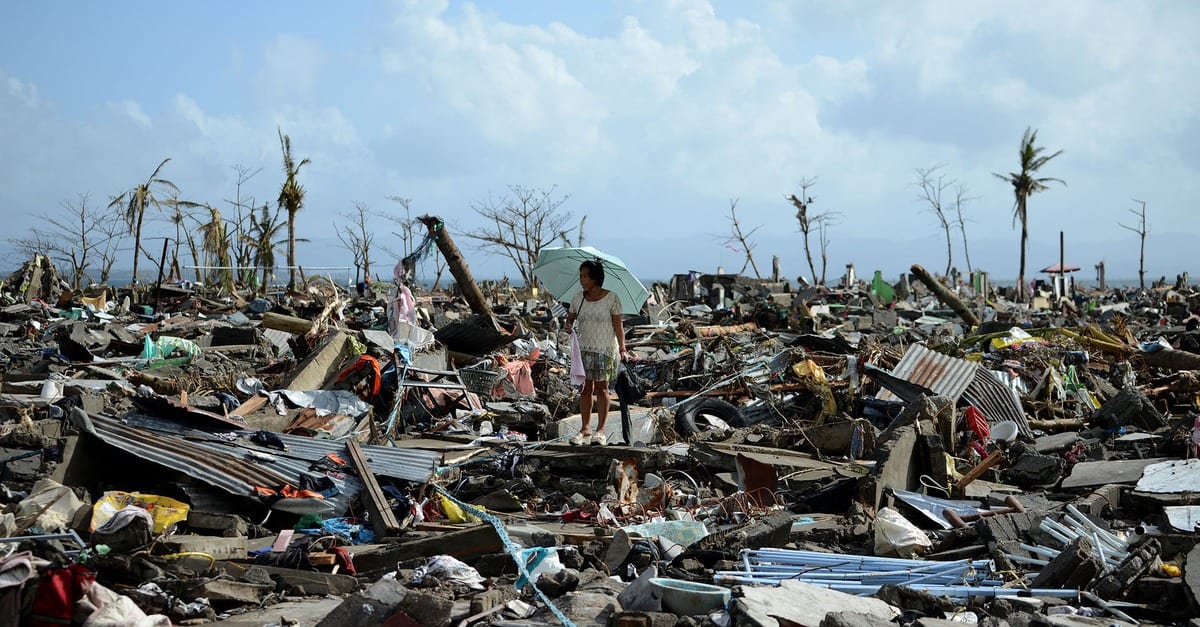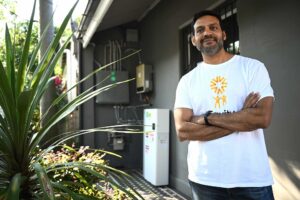Karen McNamara is reporting from the Warsaw Conference of Parties for The Conversation.
One of the most hotly-contested issues on the agenda for the current round of climate talks in Warsaw is “loss and damage”, an attempt to compensate for impacts of climate change that we can’t mitigate or adapt against. Throughout the talks the international gathering will debate how much to contribute to funding for losses and damages, particularly for developing nations.
So far we’ve seen a number of perspectives in Warsaw. News of the unprecedented destructiveness of super typhoon Haiyan provided a sombre setting for the opening ceremony with Naderev Saño, the head of the Philippines delegation, making impassioned statements on the reality of climate inaction: “What my country is going through as a result of this extreme climate event is madness. The climate crisis is madness”.
Saleemul Huq, Director of the International Centre for Climate Change and Development, argued in an interview that:
These kinds of things are beyond adaptation and the developed world needs to understand that and needs to step up. Australia, along with other Annex I [including all OECD and transitional nations] countries, have to stop trying to deny the fact that there is real loss and damage due to climate change happening and will continue to happen.
The current talks are the 19th meeting of the Conference of Parties (COP). The conference has seen slow progress in enacting the objective of the Climate Change Convention to stabilise “greenhouse gas concentrations in the atmosphere at a level that would prevent dangerous anthropogenic interference with the climate system”.
Since the first conference meeting in 1995 in Berlin, the focus on “solving” climate change revolved around mitigation – a logical and straightforward focus to prevent climate change. Unfortunately, wrangling over mitigation commitment targets from countries has seen huge delays and under-whelming progress.
By the mid 2000s, adaptation entered the international stage. This was pushed along even further by the release of the IPCC’s Fourth Assessment Report in 2007 that made a strong case that mitigation would not prevent all climate change impacts. In recent years this shift towards managing the problem has only magnified, even if emission trajectories were to be lowered substantially.
Unfortunately, adaptation too, is only part of the collective response needed. Adaptation is not the panacea to climate change. In some places, vulnerability to climate change will not be reduced by adaptation strategies — there will be limits to such action.
In some corners of the globe, socio-ecological systems will reach tipping points and places will become uninhabitable. In other places, thresholds for maintaining sustainable livelihoods will be reached as a result of limited financial or technical support and intervention, or high levels of exposure to climate stressors and limited adaptive capacity.
Regardless of our collective actions on climate change today, there will be irreplaceable losses and acute damages.
In an attempt to address these realities, an emerging discourse around loss and damage has unfolded at the climate change talks. It was first documented in a negotiated text in 2007 at the 13th conference in Bali, and then re-appeared three years later at the 16th in Cancún with an agreement to a work programme on loss and damage.
At the 18th conference in Doha in 2012, parties agreed for institutional arrangements to address loss and damage as a result of climate change to be established at the current meeting.
Fast-forward to the current round of talks. A decision on loss and damage is expected, but the make-up of the arrangements is uncertain and will be fervently debated behind closed doors in the coming days. For developing countries, establishing an international mechanism on loss and damage is a pivotal stepping-stone.
More specifically, Munjurul Hannan Khan, the Spokesperson for the group of Least Developed Countries, stated in an interview that: “An international mechanism could actually consider insurance, compensation and rehabilitation in order to help climate vulnerable countries to address issues of loss and damage”.
These inclusions are likely to be at odds with the desires of a number of developed countries, particularly when it comes to issues of compensation and financial support for assessing and responding to loss and damage. Time will tell.
Karen Elizabeth McNamara is a Lecturer in Sustainable Development at University of Queensland. She does not work for, consult to, own shares in or receive funding from any company or organisation that would benefit from this article, and has no relevant affiliations.![]()
This article was originally published at The Conversation.
Read the original article.








